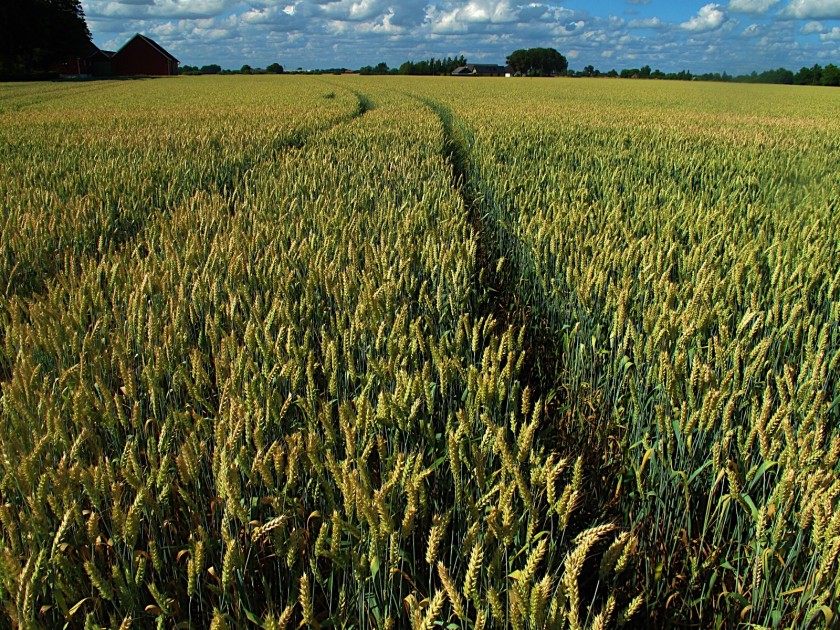Join a community of readers who are committed to Jewish stories
Sign up for JBC’s Nu Reads, a curated selection of Jewish books delivered straight to your door!

Image by Dag Endresen
SUMMER 1945
After Michael Palmer
All birds are hunger.
I have killed two stones for one bird.
A bird dies screaming in an attic.
Outside: light and cumulus clouds.
Fur hats weigh heavy.
Mold dances alone.
Humiliation and humility are the same.
My hand is a stranger to my face.
I fly in the direction of Plontsk,
or some other such dustvillage.
The river drinks itself, sand creatures
crawl dazed and frightened
to the edge of the woods,
meeting death in all styrofoam splendor.
It breathes in the back of your face,
forks for eyes, disregarded.
History has no name.
Tin statues, call them: exit wounds.
Our prostitute is a baker, stone mill legs of a sophist.
The jackal recites names.
A hell constructed from sandalwood
and wrapping paper.
O Joseph O Father
O down-torn Patriarch.
They were called the stolen souls
with no eyes.
This is how they were called.
The prostitute speaks of birds
with himself.
Who asks for a name in these days.
Birds are nameless.
I have held one, dead as all plexiglas.
Fingernails owners of prophesy.
He asks of your flight history.
He asks of your flight.
And so, young sailor, talk poems at walls.
Wasps seep from the skin of Chosenias.
KOBILNIK
Belarus, 2019
It is not much of a revelation
to the flowers how we kill and
tend bunches of riversticks and
sweet little hats for the wheat!
the wheat! it writhes and wags
its many tongues in our tender-
most openings lo before us lay
one thousand drivers with their
carts of ware their exposed bel-
lies the cat with its left eye left
gazes from the towertop while
the wheat! the wheat! calls out
in anger the angel of evenings
tarries singing to her comrades
in arms to lay down beside the
the drivers and their husbands
to lay down beside the children
and their parcels of ants and in-
testines to lay along their banks
of ache and all the tender sense
that seems to have left this town
to escape the heat for the week
at our great uncle’s dacha nest-
led between a horned owl and
a rifle and a field of rifles while
the wheat! the wheat! winks at
its little friend its only sibling
while the dust from the water
rises like steam and the sky is
filled with golden dust and the
field grows restless with wheat
and the wheat and the children
AN UNHAPPY PEOPLE IN A HAPPY WORLD
and when we
rested our feet
on clay banks
for just a day
all manners of
manna splayed
under our toes
undigested and
lonely and cold
orbs of doughy
spit and healthy
feathers brightly
engulfed in dew
the angle enoch
had over all men
wasn’t his beard
it was his broads-
words comely as
any trident wield
as any lashed eye
as any rollicking
tomorrow god—
This piece is a part of the Berru Poetry Series, which supports Jewish poetry and poets on PB Daily. JBC also awards the Berru Poetry Award in memory of Ruth and Bernie Weinflash as a part of the National Jewish Book Awards. Click here to see the 2019 winner of the prize. If you’re interested in participating in the series, please check out the guidelines here.
Moriel Rothman-Zecher is the author of the novel Sadness Is a White Bird (Atria Books, 2018), which was a finalist for the Dayton Literary Peace Prize and the National Jewish Book Award, among other honors. His second novel, which follows two Yiddish speaking immigrants from a fictional shtetl to Philadelphia of the 1930s, is forthcoming from Farrar, Straus and Giroux. Moriel’s work has been published in The New York Times, the Paris Review’s Daily, Zyzzyva Magazine, and elsewhere, and he is the recipient of the National Book Foundation’s ‘5 Under 35’ Honor, two MacDowell Colony Fellowships for Literature (2017 & 2020), and a Wallis Annenberg Helix Project Fellowship for Yiddish Cultural Studies (2018−2019). Moriel lives in Yellow Springs, Ohio, with his family.
Moriel is the creator of the fictional characters Mathew L. Cohn, Marky Miller, and M. Pinsky-Appelbaum as part of the series, What We Talk About When We Talk About the Golem.